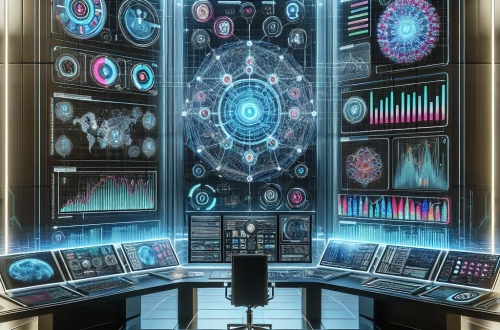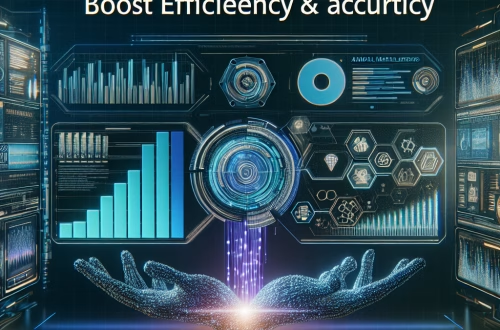AI for Contract Analysis Models
Summary:
AI-powered contract analysis models are revolutionizing legal and corporate workflows by automating the extraction, review, and interpretation of contractual terms. These models leverage natural language processing (NLP) and machine learning (ML) to parse complex legal language, identify risks, and improve efficiency. Businesses, law firms, and compliance teams benefit from reduced operational costs, faster turnaround times, and improved accuracy compared to manual reviews. With AI-driven contract analysis gaining traction, organizations across industries are adopting these tools to streamline negotiations, compliance tracking, and risk management.
What This Means for You:
- Faster Contract Review: AI models drastically reduce the time needed for contract analysis—what once took hours can now be done in minutes. This means legal teams can focus on high-value negotiations rather than tedious reviews.
- Improved Risk Detection: Machine learning helps identify hidden liabilities or unfavorable clauses that might be overlooked manually. Actionable advice: Use AI tools proactively in contract drafting stages to mitigate risks early.
- Cost Efficiency: Automating repetitive tasks lowers labor costs and minimizes human errors. Actionable advice: Start with piloting AI contract analysis for non-critical agreements before scaling up.
- Future Outlook or Warning: While AI enhances efficiency, reliance on automated analysis without human oversight may lead to misinterpretation of ambiguous clauses. Regulatory compliance standards are evolving, requiring businesses to stay updated on AI’s legal implications.
AI for Contract Analysis Models
Artificial Intelligence (AI) is transforming contract analysis, offering unprecedented speed and accuracy in parsing legal documents. Traditionally, lawyers and contract managers spent hours manually reviewing agreements—AI-powered models now automate this process, freeing professionals for strategic tasks.
How AI Contract Analysis Works
AI contract analysis models utilize NLP (Natural Language Processing) and deep learning to:
- Extract Key Clauses: Identify parties, obligations, payment terms, termination conditions, and liability risks.
- Classify Contracts: Sort documents into categories (e.g., NDAs, employment contracts, procurement agreements).
- Compare and Match: Detect deviations from standard templates or benchmark agreements.
Best Use Cases
Legal Firms: AI speeds up due diligence in mergers & acquisitions by identifying non-standard terms.
Corporate Compliance: Ensures adherence to regulatory policies by flagging non-compliant clauses.
Procurement & Vendor Management: Automates analysis of supplier contracts to minimize risks.
Strengths & Limitations
Strengths:
- Speed: Analyzes thousands of contracts simultaneously.
- Accuracy: Reduces human oversight errors.
- Scalability: Adapts to large document repositories.
Limitations:
- Ambiguity Handling: Struggles with contextual subtleties in complex clauses.
- Training Requirements: Needs high-quality datasets to improve performance.
- Dependency Risks: Full automation may overlook nuanced legal interpretations.
Industry Adoption Trends
Financial services and healthcare sectors lead AI contract analysis adoption due to stringent compliance demands. Startups and SMEs are also leveraging cost-effective SaaS-based solutions.
Choosing the Right AI Model
Key considerations:
- NLP Accuracy: Models trained on legal corpora perform better.
- Customization: Look for tools allowing clause-specific rule adjustments.
- Security: Ensure encryption and compliance with data privacy laws.
People Also Ask About:
- How accurate is AI contract analysis? Modern AI models achieve over 90% accuracy in structured documents but may lag with ambiguous phrasing.
- Can AI replace lawyers in contract review? No—AI aids lawyers by expediting reviews but cannot replace human judgment yet.
- What are the risks of AI contract tools? Overreliance may miss nuanced legal risks; human verification remains essential.
- Which industries benefit most? Legal, finance, healthcare, and any sector handling high-volume contracts.
- How much does AI contract analysis cost? Pricing varies—some providers charge per document, while others offer subscription plans.
Expert Opinion:
AI contract analysis is reshaping legal workflows but should complement—not replace—human expertise. While AI excels at speed and pattern recognition, complex legal reasoning still requires human oversight. Organizations must prioritize transparency in AI decision-making to mitigate risks. Future advancements may focus on multimodal analysis, combining text with embedded tables and signatures.
Extra Information:
- IBM Watson Legal – Provides AI-driven contract analysis with compliance checks.
- Evisort – Specializes in AI-powered contract lifecycle management.
- Gartner CLM Report – Insights on AI-based contract management solutions.
Related Key Terms:
- AI-powered legal contract review software
- Machine learning for contract analysis
- Best NLP models for legal documents
- Contract lifecycle management AI solutions
- Automated contract risk assessment tools
- AI contract analysis for corporate compliance
- Legal tech AI platforms for contract review
Check out our AI Model Comparison Tool here: AI Model Comparison Tool
*Featured image generated by Dall-E 3





